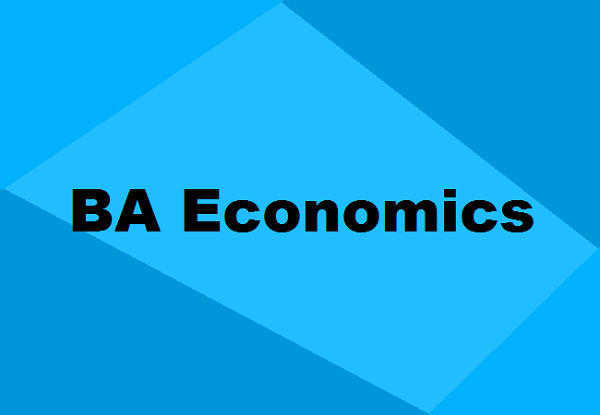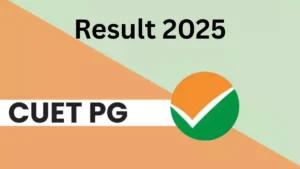Table of Contents
Hello Readers! Here is our new article on Bachelor of Arts (B.A) Economics. This article is curetted for you if you have recently passed your Class 12th Boards in 2021 and is confused about which subject you should choose for your Bachelor’s. Read this article to find what a Bachelor of Arts (B.A) economics is?
What is Bachelor of Arts (B.A) Economics all about?
Bachelor of Economics is an undergraduate course. The total duration of the course is 4 years. Economic Degree is offered streamwise as in B.Sc in Economics, B.A in Economics, and B.Com in Economics. Stream-oriented degree is of 3 years. The Degree is offered for those who are interested in Business and Management.
Scope of Bachelor of Arts (B.A) Economics?
Students interested to pursue a career in the field of Business and Management usually are interested in a Bachelor of Arts (B.A) Economics. It teaches a student to solve problems analytically, with a more solution-oriented approach, along with the basics of economics.
Eligibility Criteria for Bachelor of Arts (B.A) Economics
The eligibility criterion is listed below for the students who want to study Bachelor of Arts (B.A) economics.
- All students must have cleared their 12th Boards from a recognized Board.
- The minimum percentage scored in Boards must be 45% – 50%
- The admission process differs from college to college. Few colleges conduct their entrance exams. In such a case, a student must go through the details through the official website, before applying for admission.
Top Colleges for Bachelor of Arts (B.A) Economics
A few of the top colleges for pursuing a Bachelor of Arts (B.A) Economics in 2021 are:
- Jamia Millia Islamia, New Delhi
- IIT Bombay – Indian Institute of Technology
- IGNOU Delhi – Indira Gandhi National Open University
- MSU Baroda – Maharaja Sayajirao University of Baroda
- Christ University, Bangalore
Admission Procedure for Bachelor of Arts (B.A) Economics
Admission Procedure for Bachelor’s of Art’s (BA) Economics in 2021 depends upon college to college. Few colleges conduct their entrance exams yet others consider the scores in National Entrance Exams. The colleges notify the students of the important dates via the official website. The student should keep checking the official website of the college/university in which he or she is interested to take admission.
Entrance Exams for Bachelor of Arts (B.A)Economics
Universities and colleges conduct few entrance exams for admission to Bachelor of Arts (B.A) Economics, which has been listed below.
- Delhi University Entrance Exam
- Jawaharlal Nehru University Entrance Exam
- Jamia Millia Islamia Entrance Exam
- Christ University Entrance Exam
Reference Books for Bachelor of Arts (B.A) Economics
The books which have been listed below can be referred by students, seeking admission to Bachelor of Economics.
- Freakonomics by Steven D. Levitt and Stephen J. Dubner.
- Thinking, Fast and Slow by Daniel Kahneman and Amos Tversky.
- The Undercover Economist by Tim Harford.
- Animal Spirits by Akerlof and Shiller.
Syllabus for Bachelor of Arts (B.A) Economics
The entire syllabus for the Bachelor of Arts (B.A) Economics, semester wise has been listed below.
1st Semester
- Economics Core Course 1: Introductory Microeconomics
- Economics Core Course 2: Mathematical Methods for Economics-I
- Ability Enhancement Compulsory Course (AECC)-I
- Generic Elective (GE) Course-I
2nd Semester
- Economics Core Course 3: Introductory Macroeconomics
- Economics Core Course 4: Mathematical Methods for Economics-II
- Ability Enhancement Compulsory Course (AECC)-II
- Generic Elective (GE) Course-II
3rd Semester
- Economics Core Course 5: Intermediate Microeconomics-I
- Economics Core Course 6: Intermediate Macroeconomics-I
- Economics Core Course 7: Statistical Methods for Economics
- Skill Enhancement Course (SEC)-I
- Generic Elective (GE) Course-III
4th Semester
- Economics Core Course 8: Intermediate Microeconomics-II
- Economics Core Course 9: Intermediate Macroeconomics-II
- Economics Core Course 10: Introductory Econometrics
- Skill Enhancement Course (SEC)-II
- Generic Elective (GE) Course-IV
5th semester
- Economics Core Course 11: Indian Economy-I
- Economics Core Course 12: Development Economics-I
- Discipline-Specific Elective (DSE) Course-I (From List of Group-I)
- Discipline-Specific Elective (DSE) Course-II (From List of Group-I)
6th semester
- Economics Core Course 13: Indian Economy-II
- Economics Core Course 14: Development Economics-II
- Discipline-Specific Elective (DSE) Course-III (From List of Group-II)
- Discipline-Specific Elective (DSE) Course-IV (From List of Group-II)
Group I Elective Courses
- Economics of Health and Education
- Applied Econometrics
- Economic History of India (1857-1947)
- Topics in Microeconomics-I
- Political Economy-I
- Money and Financial Markets
- Public Economics
Group II Elective Courses
- Political Economy-II
- Comparative Economic Development (1850-1950)
- Financial Economics
- Topics in Microeconomics-II
- Environmental Economics
- International Economics
- Dissertation/Project
Fees and Jobs Scope for Bachelor of Arts (B.A) Economics
The fees vary from Rs 30,000 to Rs 1 Lakh for Bachelor of Arts (B.A) Economics.
The starting salary offered to a fresher, after graduating in Bachelor of Arts (B.A) Economics is Rs 5.48 LPA.
Job Roles for Bachelor of Arts (B.A) Economics
You may consider the following roles after your graduation with a Bachelor of Arts (B.A) Economics.
- Banker
- Market Analyst
- Economist
- Business or Economic Writer/Journalist



 [Live Update] CUET PG Result 2025 @exams...
[Live Update] CUET PG Result 2025 @exams...
 UP, MP, CBSE Board Result 2025 Live Upda...
UP, MP, CBSE Board Result 2025 Live Upda...
 CUET UG Exam Date Sheet 2025 @cuet.nta.n...
CUET UG Exam Date Sheet 2025 @cuet.nta.n...










